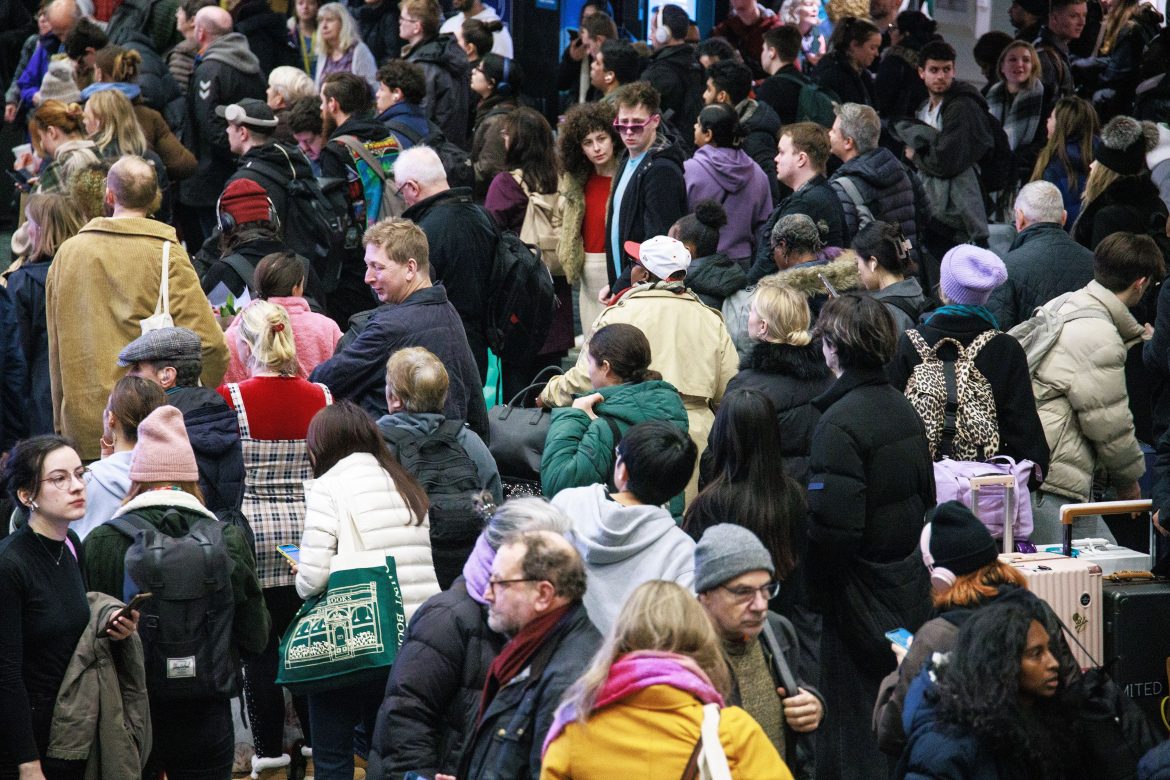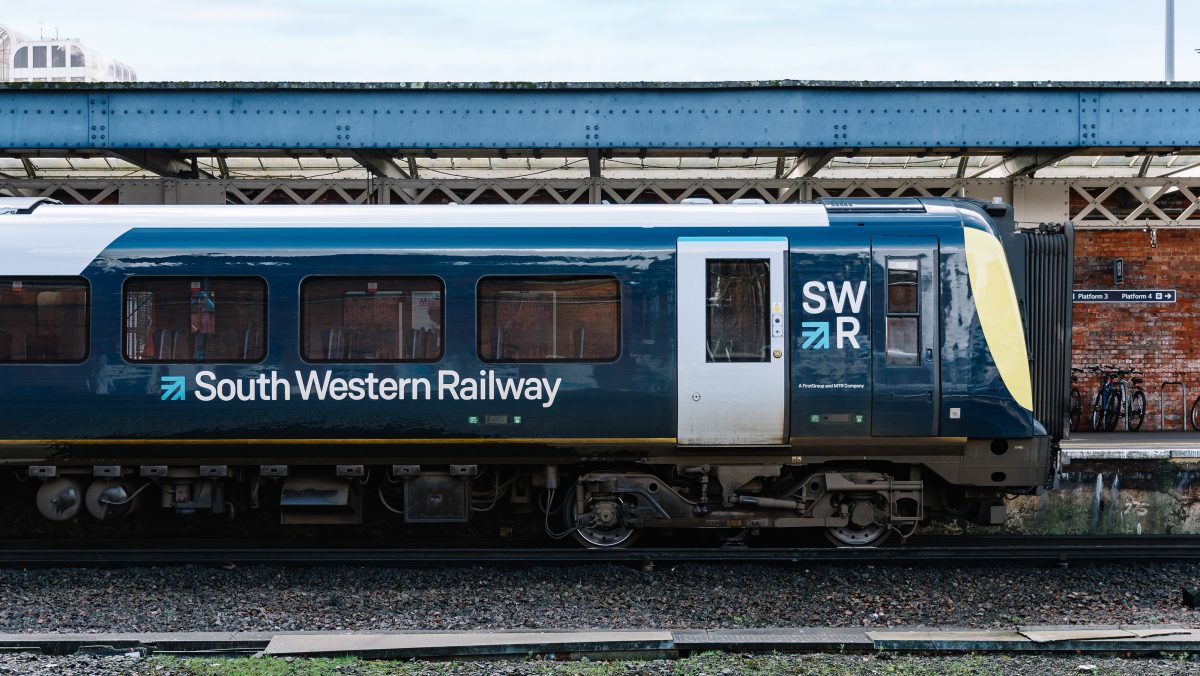
London is facing a commuting nightmare as widespread strikes are planned for the city’s railway network between Tuesday 30 January and Monday 5 February.
Various companies operating both national and inter-London services will be affected on the following days:
Tuesday 30 January: Southeastern, Southern, Gatwick Express, Great Northern, Thameslink, South Western Railway and SWR Island Line
Wednesday 31 January: Northern Trains, Transpennine Express
Friday 2 February: Greater Anglia, C2C, LNER
Saturday 3 February: West Midlands Trains, Avanti West Coast, East Midlands Railway
Monday 5 February: Great Western, CrossCountry, Chiltern
The industrial action also involves an overtime ban which will be in place on Monday 29, and from Wednesday 31 January to Tuesday 6 February, with last-minute alterations and cancellations likely.
What about Kingston?
Kingstonians may not be totally stranded, as South Western Railway announced a “severely reduced service” on a “limited” number of lines for Tuesday 30th.
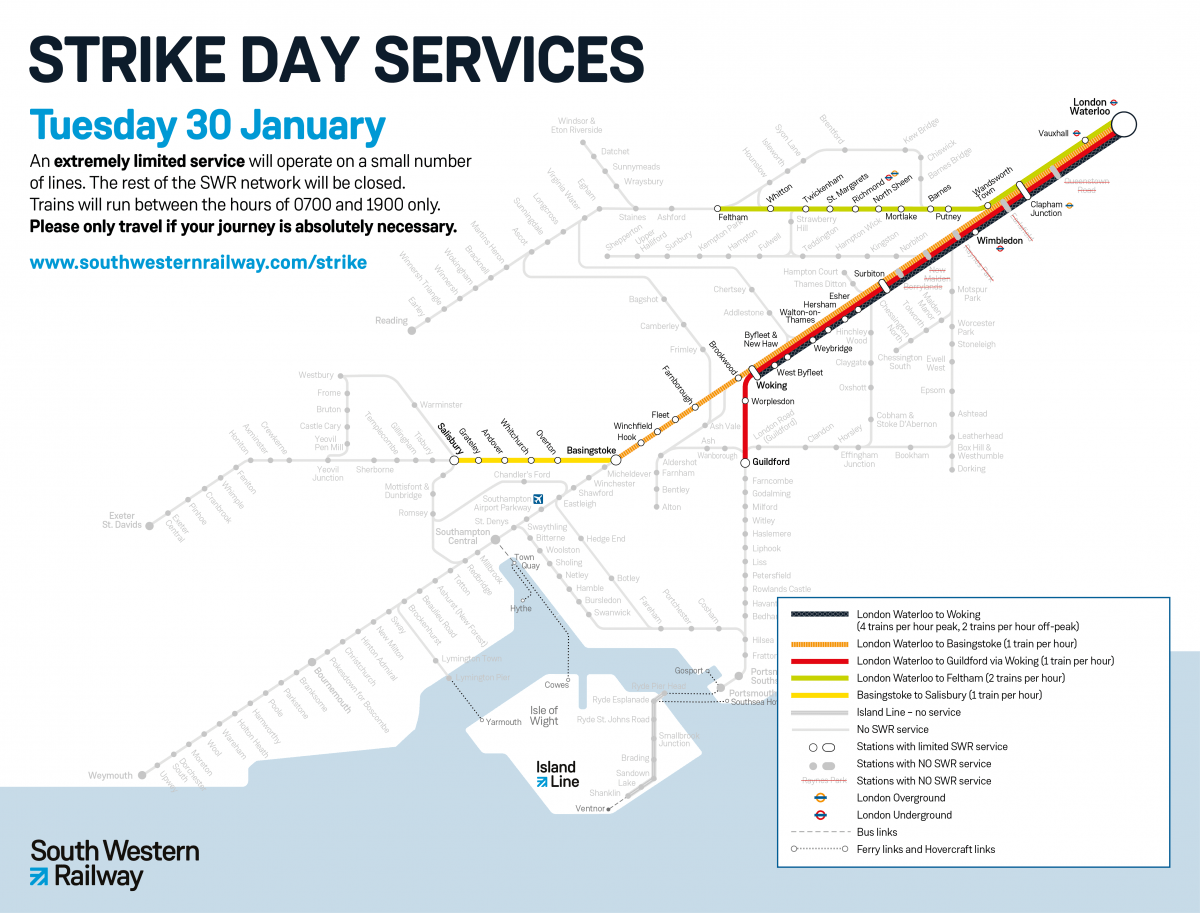
Trains will run on the line between:
- London Waterloo and Basingstoke
- London Waterloo and Feltham via Twickenham
- London Waterloo and Guildford
- London Waterloo and Woking
- Basingstoke and Salisbury
The Island Line, along with the rest of the network, will also be closed, and train operations will be limited to the hours between 0700 and 1900.
Nonetheless, Stuart Meek, South Western Railway’s Chief Operating Officer, apologised to commuters, saying:
“We’re very sorry to announce that industrial action, including full strike action, will affect our network at the end of January and into early February.
“It has been a tough start to the year due to adverse weather conditions and these damaging strikes will cause yet more disruption for our customers.”
Why are the strikes happening?
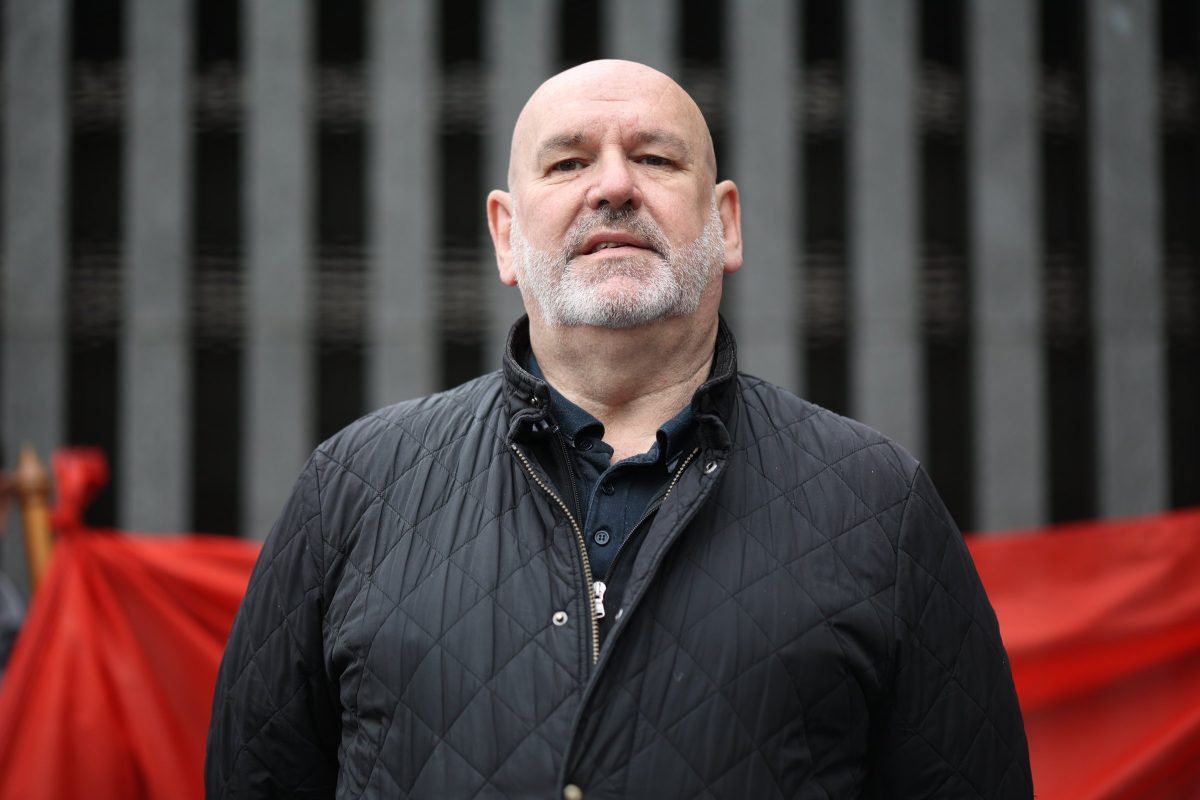
Mick Whelan, Secretary-General of the Associated Society of Locomotive Engineers and Firemen (ASLEF) has described rail companies and the government as “dissembling, deceitful, disingenuous [and] dishonourable”.
The walkouts are the latest in a long-running series of disputes over pay and working conditions between national train operators and unions ASLEF.
Aslef have repeatedly rejected pay-rises of 4%, arguing the proposals do not properly account for rising inflation.
In a statement, ASLEF’s general secretary Mick Whelan said:
“Many of our members have now not had a single penny increase to their pay in half a decade, during which inflation soared and with it the cost of living.
“There’s no excuse. The government and train operating companies must come to the table with a realistic offer so we can end this dispute and work together to ensure the future of our railways.”
What is the government doing about it?
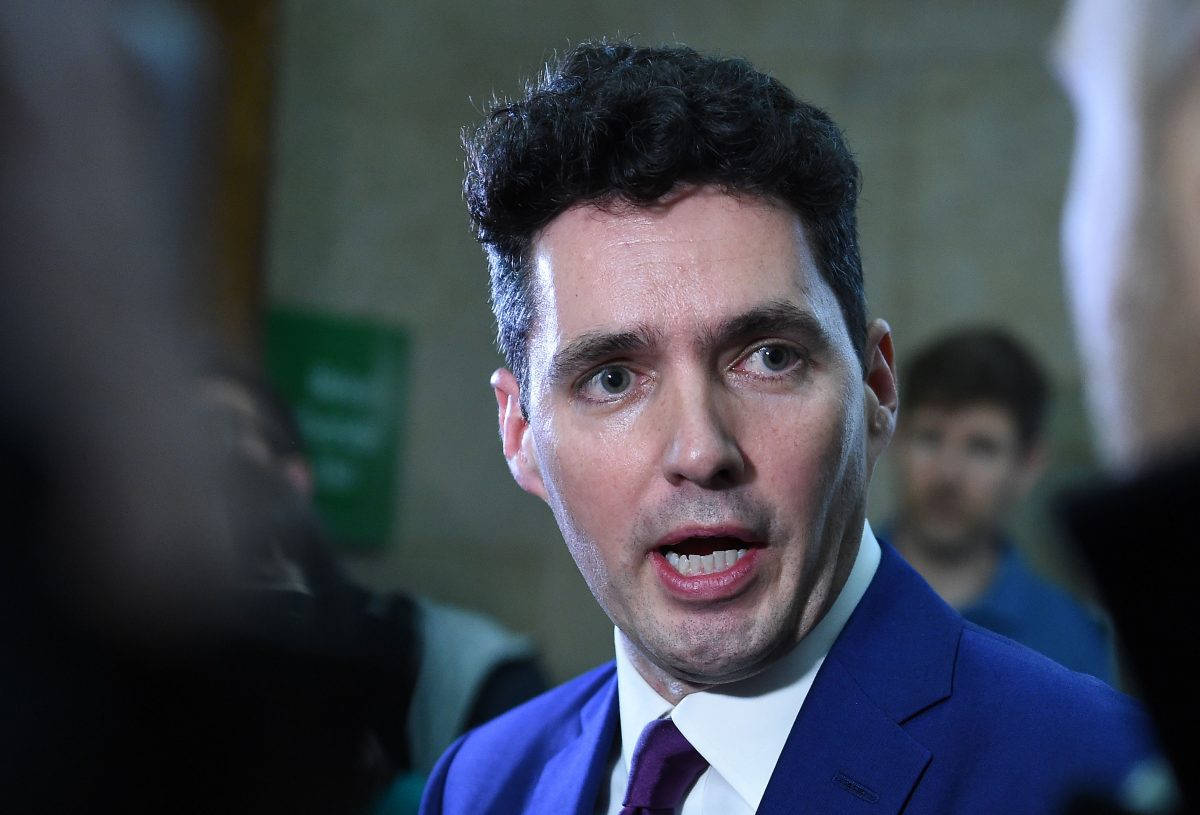
Rail Minister Huw Merriman has urged unions to strike a deal to end “train strike misery”.
Though no formal negotiations have taken place since Aslef rejected wage-increase proposals back in April 2023, the government have urged unions to give their members a vote on the issue.
The government also introduced controversial legislation mandating ‘minimal service levels’ on essential public services, including trains in July 2023.
This means there must be at least 40% operationality during strikes, with transport bosses able to sue or sack workers if these levels aren’t met.
According to Rail Minister Huw Merriman, “[the Bill] will help give passengers certainty that they will be able to make important journeys on a strike day”.
Come Tuesday, London’s estimated 1.1m commuters will find out if the government’s measures really are enough.

